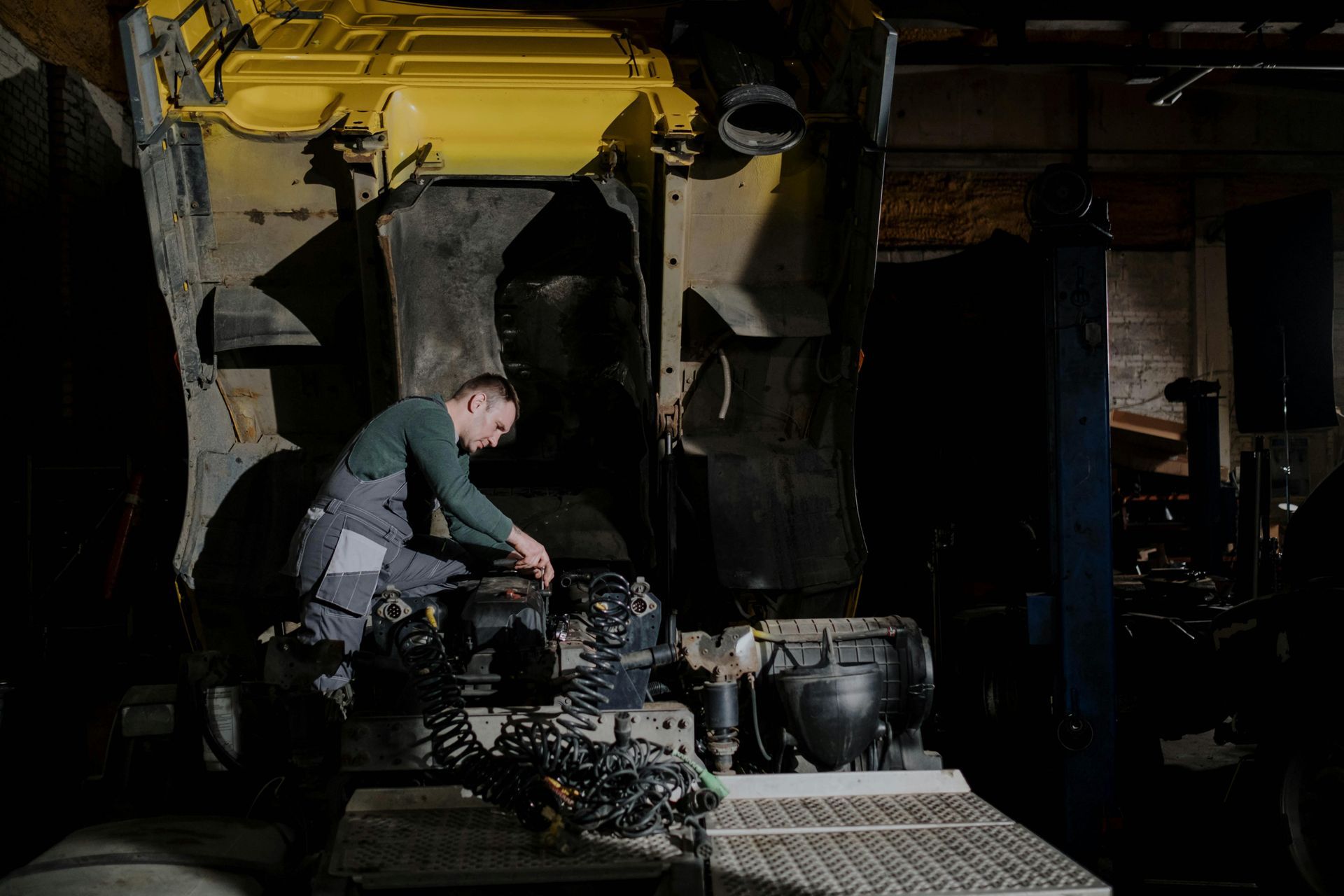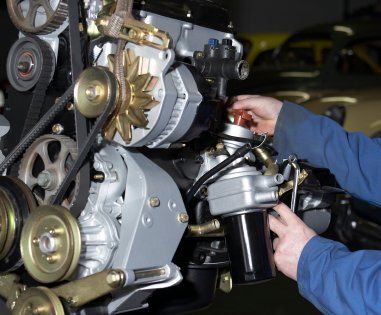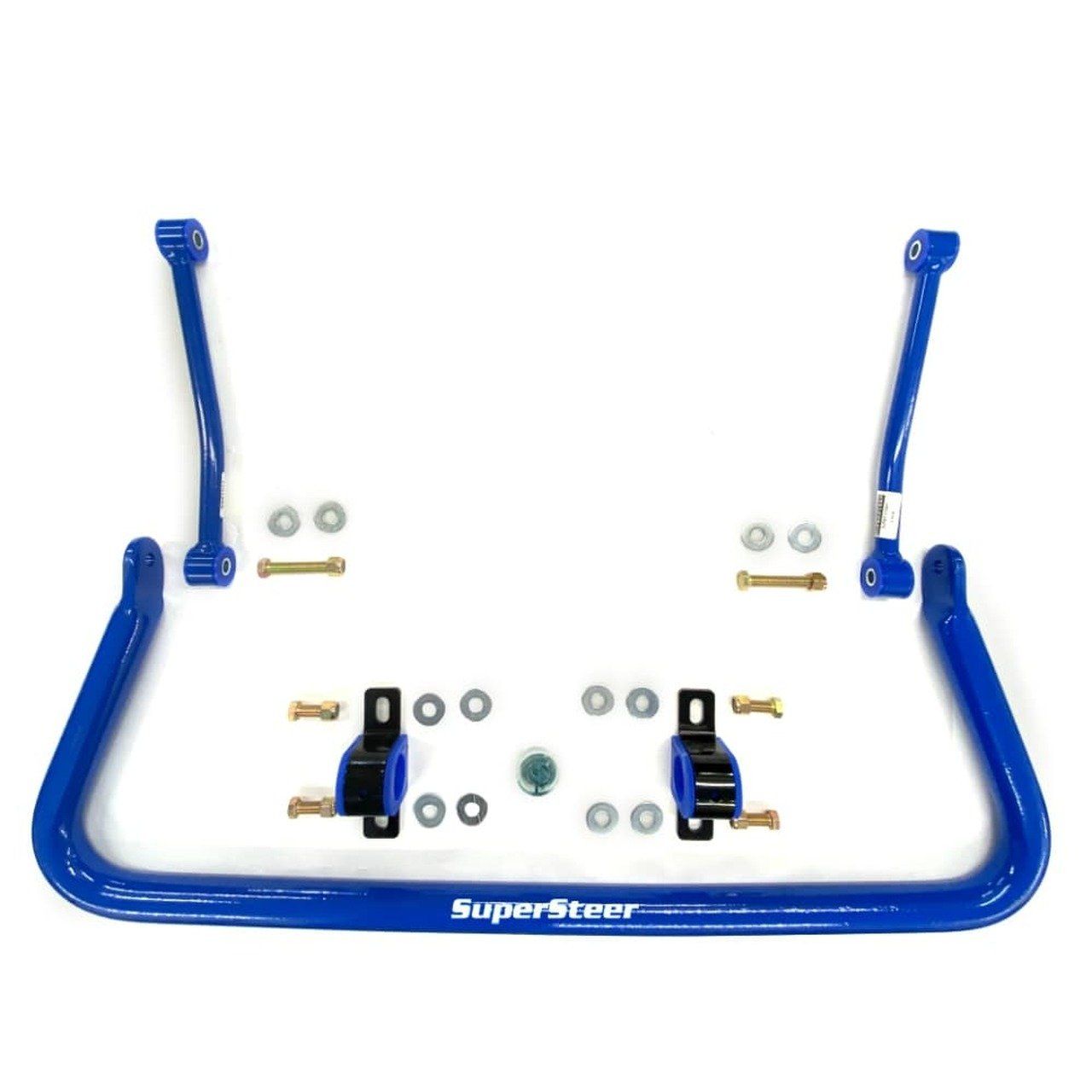Diesel vs. Biodiesel: Which is Better for Your Truck?
When it comes to fueling your truck, the type of fuel you choose impacts more than just the tank: it affects performance, maintenance needs, environmental footprint, and long-term operating costs. Truck owners and fleet managers often weigh whether to stick with traditional diesel or switch to biodiesel, and each option comes with trade-offs.
Let’s explore everything you need to know about diesel and biodiesel, including their differences, benefits, and practical considerations, so you can make the right decision for your truck.
Which Fuel Suits Your Truck Better: Diesel or Biodiesel?
Before choosing between diesel and biodiesel, it’s important to consider your truck’s specific needs. Engine type, payload, driving habits, and climate all play significant roles.
For instance, long-haul trucks that regularly pull heavy freight may perform better with diesel because of its higher energy density and torque. Conversely, regional fleets or trucks used in urban environments might benefit from biodiesel blends if sustainability and lower emissions are priorities.
Fueling infrastructure and local availability also influence the decision. Biodiesel stations are less common than diesel, which may affect route planning and the scheduling of commercial truck repairs.
Ultimately, your choice should balance performance, cost, environmental goals, and engine maintenance requirements.
What is Diesel?
Diesel is a petroleum-based fuel refined from crude oil and has long been the backbone of commercial trucking. It is valued for its high energy density, which provides excellent fuel efficiency and consistent power output for heavy loads. Diesel engines are known for durability and reliability, handling demanding workloads with ease, and they maintain strong performance over long distances and extended service life.
Benefits of Using Diesel
Diesel remains a strong choice for many truck owners due to its performance and practicality. Let’s take a closer look at some of the key advantages:
- Engine longevity: Diesel engines are built for heavy-duty use and tend to last longer than other fuel types.
- Better fuel economy on long-haul trips: Diesel’s high energy density helps reduce fuel stops and costs on extended routes.
- High torque for hauling heavy loads: Diesel engines provide the power needed for demanding freight.
- Established fueling infrastructure: Diesel is available at virtually every major truck stop, making logistics simpler for fleet operators.
These benefits make diesel a reliable option for trucks prioritizing durability, reliability, and operational efficiency.
Diesel Considerations
Despite its advantages, diesel comes with important considerations for fleets. Fuel costs can fluctuate due to global oil market changes, making budgeting a challenge. Diesel engines also produce particulate matter and nitrogen oxides, though modern engines equipped with DPF and SCR systems help reduce these emissions. Regular maintenance and timely commercial truck repairs ensure these systems function properly.
Fleet managers should also plan for long-term environmental regulations. Increasingly strict emissions standards may require retrofitting older engines with new control technologies or using low-sulphur diesel blends. Proactive planning helps diesel-powered fleets remain compliant, efficient, and competitive.
What is Biodiesel?
Biodiesel is a renewable fuel that is made from natural sources such as vegetable oils, recycled cooking grease, or animal fats. Biodiesel is compatible with standard diesel engines and is commonly used in blends like B5 (5% biodiesel, 95% diesel) or B20 (20% biodiesel, 80% diesel).
Biodiesel offers several appealing qualities:
- Lower emissions: Compared to petroleum diesel, biodiesel produces fewer greenhouse gases and harmful particulates.
- Environmental safety: Being biodegradable and non-toxic, it poses less risk in case of spills.
- Engine protection: Biodiesel has natural lubricating properties that can reduce engine wear over time.
B5–B20 blends are generally safe for modern diesel engines. Fleets using higher blends should consult maintenance specialists to prevent fuel system issues.
Biodiesel does have trade-offs. Its slightly lower energy content can reduce fuel economy by about 1–3%, and it can gel faster in cold weather unless properly blended or treated with additives. Some fleets report longer injector and pump life with biodiesel’s natural lubricity, though regular commercial truck repairs and inspections remain essential.
Advantages of Biodiesel Beyond Emissions
Biodiesel isn’t just about reducing emissions. It offers additional operational benefits that can appeal to fleets looking for sustainable, practical fuel solutions:
- Renewable sourcing: Reduces the reliance on fossil fuels and supports circular economy initiatives.
- Government incentives: Tax breaks or grants may offset costs in some regions.
- Corporate sustainability goals: Supports eco-friendly practices and meets company environmental targets.
These benefits make biodiesel an attractive option for fleets that want a combination of performance and environmental responsibility.
Biodiesel Operational Insights
Proper handling is key to getting the most from biodiesel. Storage, monitoring, and correct blending help maintain engine efficiency.
When switching to biodiesel, especially in older engines, gradual transitions with B20 blends help trucks adapt smoothly, though initial filter changes may be more frequent as deposits are cleaned.
In colder climates, fleets may need lower blend percentages or cold flow additives. Regular inspections during commercial truck repairs can help prevent cold-weather fuel issues.
Common Misconceptions About Biodiesel
Despite its benefits, some truck owners are hesitant to use biodiesel due to myths:
- “Biodiesel will damage diesel engines.” For blends up to B20, most engines run safely without modifications.
- “Biodiesel is always more expensive.” Costs vary by region and are sometimes offset by incentives or grants.
- “It doesn’t perform in cold weather.” Additives and proper blending prevent gelling, ensuring reliable performance in colder climates.
Understanding these common misconceptions helps clarify the biodiesel landscape, but it's also important to distinguish biodiesel from another renewable fuel option that's gaining traction in the trucking industry.
Renewable Diesel vs. Biodiesel: Understanding the Distinctions
While biodiesel and renewable diesel are derived from renewable sources, the fuels differ significantly in production and performance. Biodiesel is made through a chemical process called transesterification, and it is generally blended with petroleum diesel before use. Renewable diesel, by contrast, is produced through a hydroprocessing method that creates a chemically identical fuel to petroleum diesel, allowing it to replace petroleum diesel directly without blending.
Because of this difference, renewable diesel typically performs better in cold climates, provides stronger emissions reductions, and does not require engine modifications. The primary drawbacks are limited availability and higher cost in some regions, although adoption is steadily growing as more fleets seek renewable alternatives without compromising performance.
Real-World Performance Notes
In practical terms, fleets running on diesel often notice consistent fuel economy and engine reliability on long hauls, while biodiesel blends can slightly reduce mileage but offer cleaner exhaust and improved sustainability metrics. Considering fuel choice can also minimize the frequency of commercial truck repairs over time.
Choosing the right fuel ultimately depends on your route length, payload requirements, climate, and environmental targets. Fleet testing of different blends over several months can provide valuable insights before committing to a long-term fuel strategy.
At a Glance: How to Decide Between Diesel and Biodiesel for Your Truck
Choosing the right fuel depends on balancing multiple factors, including operational needs, cost, and environmental goals. Diesel remains ideal for maximum power and long-distance hauling, while biodiesel appeals to those looking to reduce emissions and support renewable energy initiatives.
Maintenance considerations also matter. Biodiesel can initially clean fuel systems, which may require more frequent filter changes. However, it performs reliably over time in well-maintained engines.
Other factors to weigh include:
- Fuel availability: Diesel is widely available, while biodiesel blends may be limited in some areas.
- Operating costs: Diesel prices fluctuate with global oil markets; biodiesel costs depend on local production and incentives.
- Climate considerations: Biodiesel may require additives in colder regions to prevent gelling.
- Environmental priorities: Fleets aiming to reduce carbon footprints may prefer biodiesel blends.
Blends like B20 provide a middle ground, reducing emissions without significantly affecting fuel efficiency or engine performance.
Fuel Maintenance Tips for Trucks
Proper maintenance is crucial regardless of fuel type:
- Inspect fuel filters and lines regularly to avoid blockages.
- Use oils compatible with your fuel type to protect the engine.
- Store biodiesel properly and monitor quality to prevent contamination.
- Schedule routine inspections for emissions, engine performance, and fuel system health.
- Conduct seasonal checks to prepare for extreme temperatures and adjust blend usage as needed.
- Use diagnostic tools to track fuel system efficiency and catch early signs of wear or deposits.
Regular maintenance not only protects engines but can improve overall fuel economy and prevent costly downtime and commercial truck repairs.
Trust Mainline RV & Truck Service to Help You Choose the Right Fuel
Fuel choice is only part of keeping your truck on the road. Regular maintenance and reliable repairs are just as important in protecting your investment and avoiding costly downtime. That’s where Mainline RV & Truck Service comes in. Our team understands the unique demands of commercial vehicles and can provide guidance on selecting the right fuel and oil for your truck.
Whether you run on diesel, biodiesel, or a blend, we offer dependable maintenance and expert commercial truck repairs to keep your fleet operating smoothly. Call 440-439-7777 or connect with us through our online contact form to schedule a service today. With Mainline RV & Truck Service, you’ll have a partner committed to keeping your truck performing optimally mile after mile.


















